Unfixing the match fixing
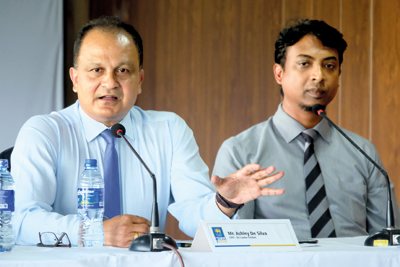 The good, the bad and the ugly’ was a great western movie that kept us spellbound two scores of years ago, and it was a story of inevitable greed of man. It is there, depicted in all the good scriptures and throughout the annals of mankind, it has been a matter of trying to keep people away from evil.
The good, the bad and the ugly’ was a great western movie that kept us spellbound two scores of years ago, and it was a story of inevitable greed of man. It is there, depicted in all the good scriptures and throughout the annals of mankind, it has been a matter of trying to keep people away from evil.What is happening now is just an extension of a tentacle of man’s greed and men looking for ways to cut their own niches via shortcuts. In big time sports its now match-fixing and it is a big time menace.
Wikipedia explains match-fixing in this manner, “In organised sports, match-fixing occurs as a match is played to a completely or partially pre-determined result, violating the rules of the game and often, the Law. The most common reason is to obtain a payoff from gamblers, but teams may also intentionally perform poorly to gain a future advantage, such as a better draft pick [A] or, on paper, a less eminent opponent in a play-off.[B] A player might also play poorly to rig a handicap system.”
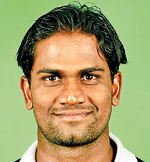 “Match-fixing, when motivated by gambling, requires contacts (and normally money transfers) between gamblers, players, team officials, and/or referees. These contacts and transfers can sometimes be found, and lead to prosecution by the law or the sports league(s). In contrast, losing for future advantage is internal to the team and very hard to prove. Often, substitutions made by the coach designed to deliberately increase the team’s chances of losing (such as having key players sit out, using minimal or phantom injuries as an excuse), rather than ordering the players actually on the field to intentionally underperform, are cited as the main factors in cases where this has been alleged.
“Match-fixing, when motivated by gambling, requires contacts (and normally money transfers) between gamblers, players, team officials, and/or referees. These contacts and transfers can sometimes be found, and lead to prosecution by the law or the sports league(s). In contrast, losing for future advantage is internal to the team and very hard to prove. Often, substitutions made by the coach designed to deliberately increase the team’s chances of losing (such as having key players sit out, using minimal or phantom injuries as an excuse), rather than ordering the players actually on the field to intentionally underperform, are cited as the main factors in cases where this has been alleged.
“Match-fixing generally refers to fixing the final result of the game. Another form of match-fixing, known as spot fixing, involves fixing small events within a match, which can be gambled upon, but which are unlikely to prove decisive in determining the final result of the game.” Yet, there are more ways of finding shortcuts to make a quick buck in sports we all know.
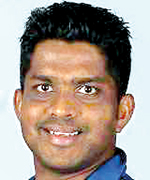 In Sri Lanka, arguably, only the game of cricket has reached international fixing levels. So much so, it is now reaching epidemic heights, and I remember ICC’s General Manager- Anti-Corruption Unit (ACU), Alex Marshall, recently saying, “The ICC anti corruption unit works to uphold integrity in cricket and this includes conducting investigations where there are reasonable grounds to do so. There is currently an ICC ACU investigation underway in Sri Lanka. Naturally, as part of this, we are talking to a number of people.”
In Sri Lanka, arguably, only the game of cricket has reached international fixing levels. So much so, it is now reaching epidemic heights, and I remember ICC’s General Manager- Anti-Corruption Unit (ACU), Alex Marshall, recently saying, “The ICC anti corruption unit works to uphold integrity in cricket and this includes conducting investigations where there are reasonable grounds to do so. There is currently an ICC ACU investigation underway in Sri Lanka. Naturally, as part of this, we are talking to a number of people.”
As a result, now three former cricketers – Sanath Jayasuriya, Nuwan Zoysa and Dilhara Lokuhettige have already been charged by the ICC and it is reported there are a lot more in the waiting list.
In this scenario, we asked Sri Lanka Cricket (SLC) Chief Executive Officer (CEO) Ashley de Silva his impressions on the matter. De Silva admitted they have a growing problem with regard to corruption in cricket that needs remedial measures. He said, “It’s like a chain. If someone gets lured to it, then there is a chain reaction. It’s not a case thing that began yesterday. If you look at the current investigations, it has been going on for almost two years now. The ICC also could 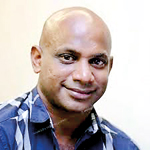 not come out with the names if they did not have the evidence. Before they disclose the names, they carry out proper investigations and once the investigations are concluded only they start issuing the charge sheets. The ICC, when they conduct investigations, all incidents related to international cricket is being conducted by the ICC. If the investigations are being conducted by the ICC, the ICC also conduct investigations very secretly, where the member-boards are not aware of who they have spoken to and who has given them the information. None of this is disclosed to us. They start giving out the charge sheets only when they have proper evidence and that is the status quo across the board in the ICC world.”
not come out with the names if they did not have the evidence. Before they disclose the names, they carry out proper investigations and once the investigations are concluded only they start issuing the charge sheets. The ICC, when they conduct investigations, all incidents related to international cricket is being conducted by the ICC. If the investigations are being conducted by the ICC, the ICC also conduct investigations very secretly, where the member-boards are not aware of who they have spoken to and who has given them the information. None of this is disclosed to us. They start giving out the charge sheets only when they have proper evidence and that is the status quo across the board in the ICC world.”
“However, when it comes to investigations at domestic level, SLC’s own investigation unit makes its inquiries and keep the ICC informed about the developments. However, all international inquiries are conducted by the ICC and they have been going for some time now.”
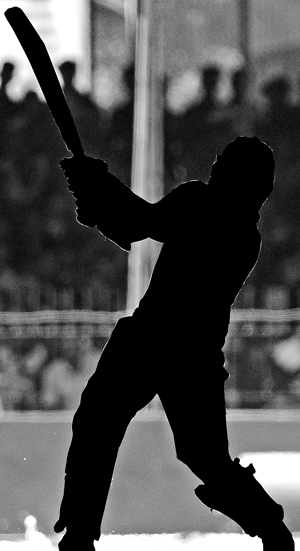
Who's Next
We, at this point, mentioned to the SLC CEO that SLC does not have its own anti corruption unit. A while ago, former SSP Lakshman de Silva who headed the ACU was sent home, and even the services of Ayesh Weerakkody who manned the Unit has been terminated. De Silva explained, “Basically, our ACU always consisted of one person, for the past five to six years. We have now realised the gravity of the situation. For the past few months we have been having some very serious discussions with the ICC. There, they are trying to assist the SLC and set up a proper anti corruption unit in Sri Lanka. The ICC have proposed to study the legislation and systems from countries that already have set up such Units and take a cue from them. Now, England, Australia and South Africa have already set up such units and are in operation.”
We, at that juncture, pointed out that the Ministry of Sports (MoS) already has a anti corruption draft set in place and the Sunday Times last week carried an article to that effect. The SLC CEO replied, “Though it has been formulated, it has not been passed by Parliament, and that is the reason why we are trying to bring the legislation now. We have had very constructive discussions with the Crown prosecutor in the United Kingdom, last week. Even a person from the Attorney General’s (AG) office – Sumathi Darmawardena got involved with the discussions and we were able to make good progress. We worked for about one-and-a-half days.”
“On drafting the legislation now, he will have to take it forward through the ministry of sports to the Cabinet. A Crown prosecutor was introduced to us by the head of the ICC ACU. The discussions were very constructive and they basically enlightened us on how the legislation has been formulated in the UK and how the systems work there. Based on that, we also made a few changes and were able to draft some regulations similar to what is prevalent in other countries and now it is the process of being formulated at the AG’s Department.”
De Silva said, “However, the whole draft is being formulated under the supervision of the ministry of sports and they are keen to have this in place as early as possible. We have a deadline we are working on. We are trying to have things in place by the end of this year.”
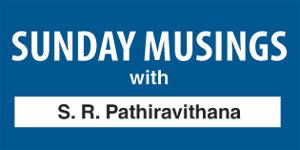 We asked what sort of an anti corruption unit do you have in mind? De Silva said, “We are trying to have an ACU comprising of about 2-3 people. They will be recruited and will carry on with their operations independently, irrespective of whom they report to. They would be an independent unit which will be answerable to the ICC at the end of the day.”
We asked what sort of an anti corruption unit do you have in mind? De Silva said, “We are trying to have an ACU comprising of about 2-3 people. They will be recruited and will carry on with their operations independently, irrespective of whom they report to. They would be an independent unit which will be answerable to the ICC at the end of the day.”
“We have requested for assistance from the ICC in recruiting them. In fact, we have asked them to nominate a person to set it up. They can set it up and work with us for about six months, so that our unit will be educated on how it should be done.”


